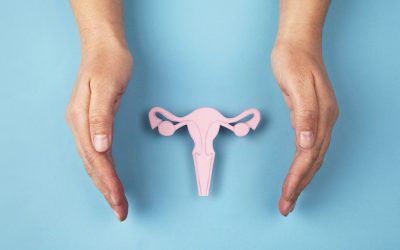You’ve no doubt heard it said: having a baby changes everything. It’s a fairly true, if general, assessment of what happens when your family welcomes a tiny human into your home. But it doesn’t quite paint a full picture.
Having a baby also changes you — and that includes your brain. This is true of moms and dads. But today, we’re talking to and about the fellas.
While you may not see the transformation on the outside, fathers experience shifts in brain function after bringing a new baby into the world. Dads who spend the most time with their children experience the greatest effects.
What happens to dads when a new baby arrives? Well, for starters . . .
Testosterone drops.
The hormone testosterone is often associated with masculinity, likely because testosterone production is linked to qualities like aggression and competition.
Shortly after a new baby is born, fathers experience a dip in testosterone. The drop is most noticeable in the first month but continues for three months or more.
This might not sound like a great thing, but actually, lower testosterone may have several benefits for you as a brand-new dad.
For one thing, it can make you more patient with your crying offspring. It may also promote baby-daddy bonding.
Research on testosterone levels in new dads isn’t entirely conclusive, though. While the effect has been demonstrated in humans, new rodent fathers seem to have more testosterone than before.
Plus, there are human studies that show that testosterone levels spike when the baby cries. And that’s a potentially helpful feature of male physiology. A temporary boost in testosterone may trigger a new dad’s instinct to protect his little one.
There’s one word of caution when it comes to post-baby testosterone levels. This hormone has a protective effect against mood disorders. When it drops, you may be more susceptible to depression and other mental health conditions.
Postpartum depression is usually associated with women, but men can experience it, too. Mental health checks and the support of friends and family are critical during this sensitive period. Translation? Don’t assume that because you’re the dad, your feelings of emotional overwhelm are unwarranted. Take care of yourself as much as you’re taking care of your family.
At the same time, relationship-building hormones surge.
While testosterone goes down, other hormones rise to take its place. Chief among them are prolactin and oxytocin.
In moms, prolactin is connected to milk production. A new baby’s cries often stimulate the release of milk.
Prolactin isn’t just for mothers, though. Fathers-to-be often get a rush of prolactin shortly before birth. While this hormone doesn’t lead to milk production in men, it does help dads respond to their babies’ cries.
When dads and babies spend time together, another hormone comes into play: oxytocin. This hormone is associated with feelings of love and connectedness.
Dads who touch their babies frequently get the biggest benefit. You can boost your oxytocin level by giving the new baby a massage or doing some skin-to-skin snuggling.
Oxytocin encourages dads to play with their little ones. In one study, men were asked to take a whiff of this hormone. Afterward, the dads seemed to be better engaged with their kids. In response, the babies’ oxytocin levels also went up.
New neurons form, too.
New baby, new brain cells! When you become a dad, your brain may form new pathways.
Researchers have studied this effect in mice. The mice dads’ brains developed neurons in the areas of the brain linked with smell. These brain cells helped the mice connect with their offsprings’ scent.
For these changes to take place, the mice had to be in direct contact with their babies. The fathers who were taken away from the litter didn’t develop new cells. Even the ones who were in the same vicinity but separated by a mesh barrier didn’t receive the benefit.
This effect of parenthood on brain pathways hasn’t been shown only in rodents, though.
In a study on humans, three groups of new parents were studied. The first was mothers who handled the primary childcare responsibilities. Fathers who worked outside the home but still engaged with their kids made up the second group. The third cohort was gay fathers who raised children on their own.
All three groups showed changes in their brain networks. Researchers noted the effects in areas of the brain linked to social and emotional cognition. Surprisingly, the brain changes were quite similar in both of the groups that had primary childcare responsibilities.
This suggests that parenting instincts that are often associated with mothers may not be automatically tied to gender or giving birth. Rather, they may be linked to how much time parents and kids spend together.
Dads with paternity leave may be at an advantage here. But even if you can’t take extra time off of work, make it a point to be as hands-on with your baby as you can. Devote your at-home hours to childcare. Your connection to your little one will grow in response.
And a new dad’s brain can even grow (or shrink).
Not only could you experience shifts in hormone production and new neural pathways, but the size of your brain might change as a new dad, too.
In one study, researchers scanned men’s brains when their babies were no more than a month old. They repeated the scans several weeks later. The images showed new gray and white matter in the men’s brains. The growth was seen in areas associated with care and concern for others. (Similar research has shown that new moms go through similar brain changes.)
Not all of the areas of the brain got bigger, though. In fact, some shrank!
Areas that shrank were associated with the default mode network. These sections of the brain are responsible for the voice you hear in your head. They’re what let your mind wander. Because of those areas, you reprocess past events or start thinking about the future.
The default mode network is necessary. But during the period of caring for a new baby, its decreased activity may help you focus on your little one’s needs. You may be more checked in with the world around you. That helps you look out for threats to your offspring’s wellbeing.
Areas of the brain linked to anxiety may shrink during this time, too. Scientists speculate that this helps dads engage in rough-and-tumble play with their kids.
In general, changes in brain size during this part of life are good. But there may be drawbacks. Some experts think that brain changes may make some men more susceptible to postpartum depression.
New fatherhood is a tumultuous time. It’s wise to be on the lookout for any changes with negative effects.
Most importantly, familiarity with the baby grows.
Before having a baby, all newborns’ cries might sound the same. After becoming dads, though, men become sensitive to their own babies’ vocalizations.
In studies, men have been able to identify which crying sounds came from their own kids. To do well on this task, though, they had to spend at least four hours daily with their children. If they did, they scored as well as most moms on the test.
The mothers were in the same boat. If they were with their little ones less than four hours each day, they weren’t as in tune with the cries either.
Once again, it seems that parenting involvement plays the biggest role in brain changes after having a baby. The more hands-on you are with your child, the more your brain will respond. And the more your brain responds, the more connected to your baby you’ll want to be.







